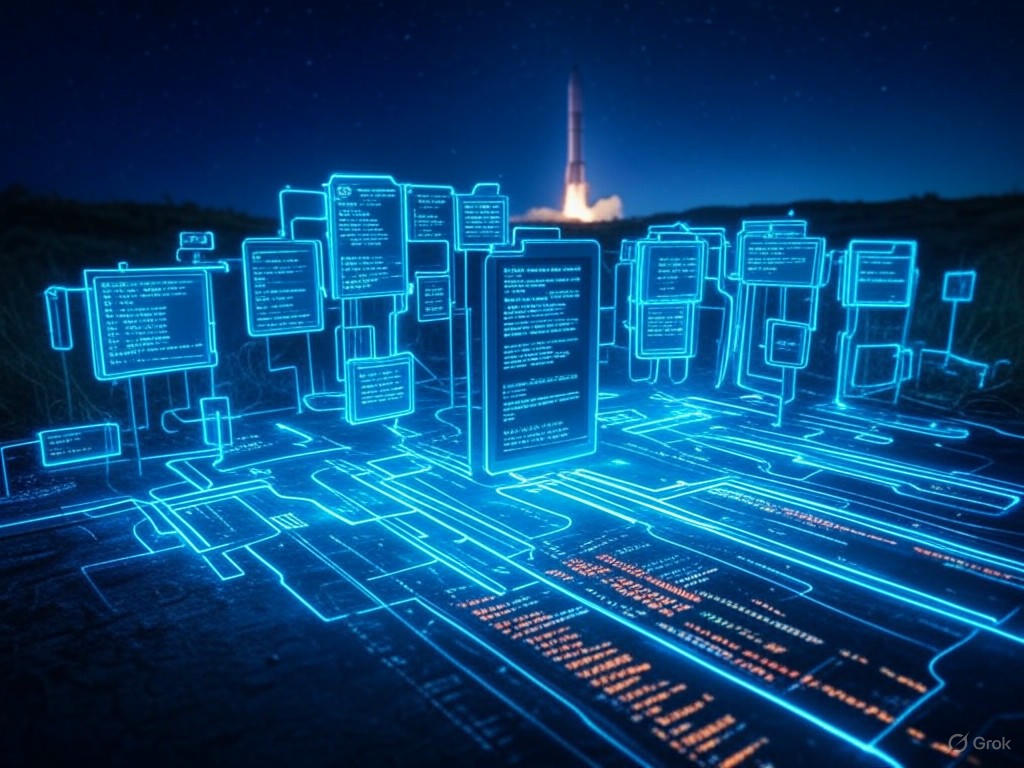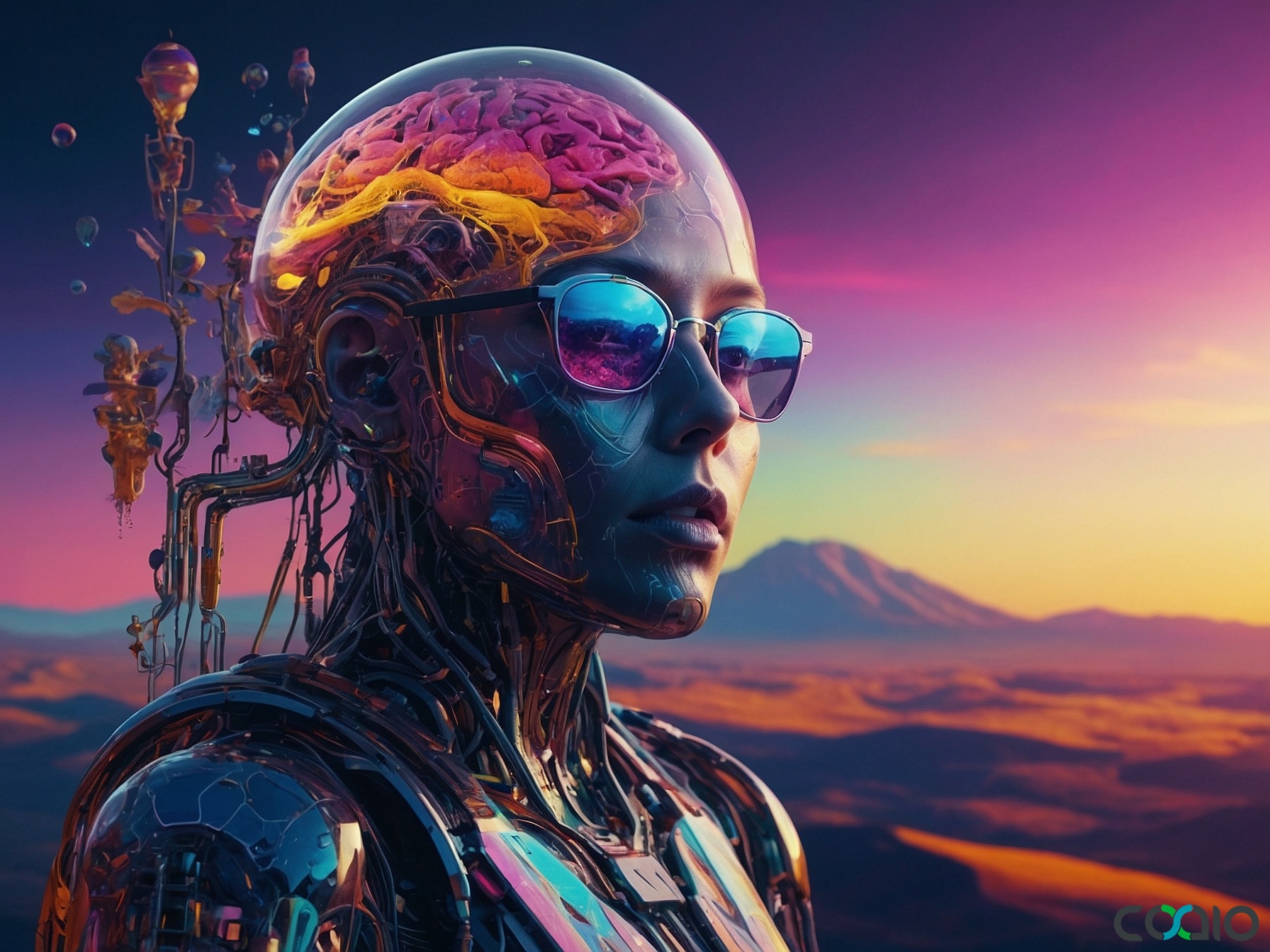
AI Revolutionizing Software Development: Cost Savings, Innovations, and Regulatory Shifts in 2025
In the fast-paced world of technology, software development continues to evolve at breakneck speed, driven by advancements in artificial intelligence (AI), regulatory changes, and hardware innovations. As of July 10, 2025, recent headlines highlight how AI is reshaping the industry, from massive cost efficiencies to unexpected product creations and ongoing debates over safety and ethics. This article dives into the latest developments, drawing from credible sources to explore their implications for developers, businesses, and the broader tech ecosystem. These stories underscore the transformative potential of AI in software development, where efficiency and innovation are key to staying competitive.
Microsoft’s AI-Driven Cost Savings and Workforce Shifts
One of the most striking stories from the past week involves Microsoft, a tech giant that’s leveraging AI to streamline operations and achieve significant financial benefits. According to a report from TechCrunch, Microsoft announced internal savings of over $500 million in its call center operations last year, largely attributed to AI implementations. This revelation came shortly after the company made headlines for cutting 9,000 jobs, a move that has sparked discussions about the role of AI in automating routine tasks and enhancing productivity Read more.
This development exemplifies how AI can optimize software development processes, reducing costs and allowing companies to redirect resources toward innovation. For instance, AI-powered tools can automate code generation, testing, and debugging, which traditionally require extensive human effort. In Microsoft’s case, the savings highlight a broader trend where AI not only cuts expenses but also improves customer service through faster response times and personalized interactions. However, this also raises ethical questions about job displacement and the need for reskilling programs in the tech sector.
Experts suggest that such efficiencies could become a standard for software firms worldwide. By integrating AI into development workflows, businesses can achieve similar results, making software more scalable and cost-effective. This ties into the growing emphasis on intelligent automation, where tools like machine learning algorithms analyze data patterns to predict and prevent issues before they arise. As software development becomes increasingly AI-centric, companies are rethinking their strategies to balance innovation with sustainability.
ChatGPT’s Hallucinations Sparking Real-World Innovations
AI’s unpredictable nature was on full display in a fascinating story from Ars Technica, where OpenAI’s ChatGPT chatbot invented a nonexistent feature, only for a company to turn it into reality. Soundslice, a music education platform, discovered that ChatGPT was falsely describing a music notation feature that didn’t exist. Instead of dismissing it, the company decided to develop and implement this feature, effectively bridging the gap between AI’s creative “hallucinations” and practical software enhancements Read more.
This incident underscores the dual-edged sword of AI in software development: while it can generate innovative ideas at lightning speed, it also risks spreading inaccuracies. In software terms, this highlights the importance of robust testing and validation processes to ensure that AI-generated suggestions align with real-world applications. For developers, tools like ChatGPT can serve as brainstorming partners, accelerating the ideation phase of projects. However, as seen here, human oversight is crucial to refine these outputs into tangible products.
The broader impact on software development is profound. AI’s ability to “hallucinate” features could inspire a new wave of rapid prototyping, where developers use generative AI to explore possibilities before committing resources. This approach not only speeds up development cycles but also fosters creativity in niche areas like music tech or educational software. As more companies adopt similar strategies, we may see a surge in AI-assisted innovations, potentially transforming how startups and established firms approach product development.
Debates Over AI Search Crawling and Tech Policies
The tech policy landscape is heating up, as evidenced by Cloudflare’s push for Google to revise its AI search crawling practices. According to Ars Technica, Cloudflare is advocating for Google to separate its bots for AI Overviews and traditional search indexing, arguing that the current system could lead to inefficiencies and potential misuse of web data Read more.
This dispute reflects the growing tensions in software development around data privacy, AI ethics, and search engine optimization. As AI systems rely heavily on vast datasets for training and operations, developers must navigate complex regulations to ensure their tools comply with emerging standards. For software engineers, this means incorporating privacy-by-design principles, such as anonymizing data and obtaining user consents, into their workflows. The outcome of such debates could influence how future AI-driven applications are built, potentially leading to more transparent and user-centric software.
In a world where AI is integral to search algorithms, this story highlights the need for collaborative efforts among tech companies to establish fair practices. Developers working on AI-enhanced software, like chatbots or recommendation engines, will need to stay abreast of these policy shifts to avoid legal pitfalls. Ultimately, this could drive innovation toward more ethical AI solutions, benefiting the entire software development community.
California’s Push for Mandated AI Safety Reports
Regulatory scrutiny of AI reached a new milestone with California’s latest legislative efforts, as reported by TechCrunch. State Senator Scott Wiener introduced amendments to bill SB 53, requiring major AI companies to disclose safety protocols and report incidents promptly Read more.
This move is a direct response to growing concerns about AI risks, such as biased algorithms or unintended system failures in software applications. For software developers, this means integrating comprehensive safety measures into their processes, including regular audits and risk assessments. The bill could set a precedent for global standards, compelling companies to prioritize security in their development cycles. This is particularly relevant for industries like healthcare and finance, where AI-powered software handles sensitive data.
As AI becomes more embedded in everyday software, these regulations could foster a culture of accountability, encouraging developers to build more reliable and transparent systems. This not only mitigates risks but also builds trust among users, which is essential for the long-term success of AI-driven products.
Apple’s Vision Pro Update and Hardware-Software Integration
Shifting gears to hardware innovations, Apple’s first major update to its Vision Pro mixed-reality headset is generating buzz, as detailed in an Ars Technica report. The update includes the powerful M4 chip and a more comfortable strap, positioning it as a bridge to future redesigns Read more.
This evolution highlights the intersection of hardware and software development, where advancements in chips like the M4 enable more sophisticated AI features and immersive experiences. For software developers, this means creating applications that leverage enhanced processing power for tasks like real-time rendering or AI-assisted interactions. The update exemplifies how iterative improvements can extend a product’s lifecycle, keeping it relevant in a competitive market.
As these stories illustrate, software development in 2025 is at a pivotal juncture, with AI driving efficiency, innovation, and ethical challenges. Now, picture a landscape where cutting-edge ideas flourish without the burdens of traditional hurdles—envision a world where founders can channel their creativity into groundbreaking software, backed by streamlined, risk-minimized processes. That’s the essence of a forward-thinking partner like Coaio, dedicated to empowering startups through expert outsourcing and team building, ensuring that visionary ideas translate into reality with minimal fuss.
About Coaio
Coaio Limited is a Hong Kong-based tech firm that specializes in outsourcing software development and assembling skilled teams in Vietnam. We offer comprehensive services such as business analysis, competitor research, risk identification, design, development, and project management, delivering cost-effective, high-quality software solutions tailored for startups and growth-stage companies. With a focus on user-friendly designs and efficient tech management for clients in the US and Hong Kong, Coaio helps you navigate the complexities of software development, allowing you to concentrate on your core vision while we handle the technical details, minimizing risks and maximizing results.
 English
English
 Français
Français
 Español
Español
 廣東話
廣東話
 中文
中文
 日本語
日本語
 한국어
한국어
 العربية
العربية
 Deutsch
Deutsch

